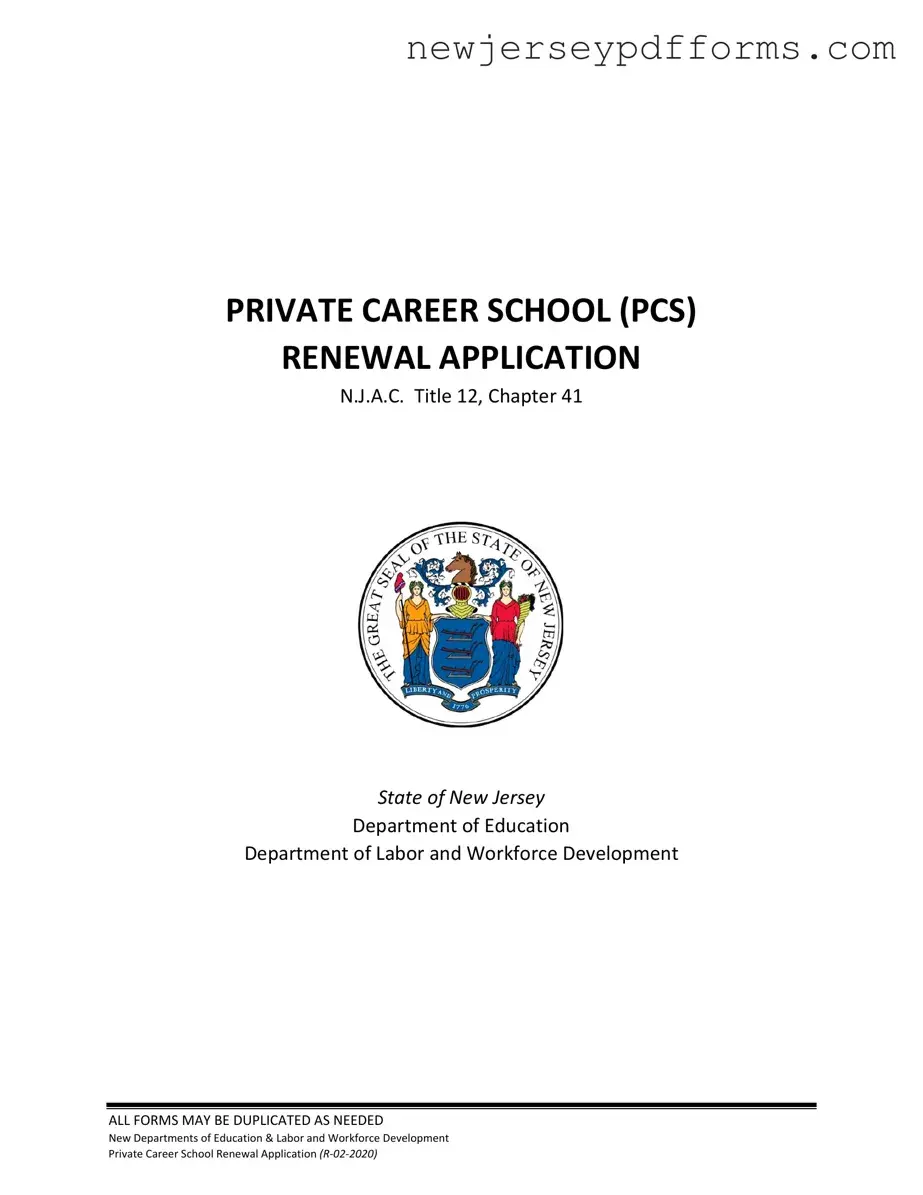What is the purpose of the New Jersey School Application form?
The New Jersey School Application form is designed for private career schools seeking to renew their Certificate of Approval to operate. This certificate ensures that the school complies with state regulations regarding educational quality, safety, and financial accountability. The renewal application must be submitted to the appropriate departments to maintain the school's ability to provide training programs.
What documents are required to complete the renewal application?
To successfully complete the renewal application, several documents must be included. These include the Application for Renewal of Certificate of Approval, a notarized Statement of Assurances, an audited financial statement for the past three years, a tuition performance bond, the current school catalog, and the student enrollment agreement. Additionally, any relevant approvals from other agencies and sample advertising materials should also be submitted.
What is the deadline for submitting the renewal application?
The completed renewal application must be submitted at least 90 calendar days before the expiration of the school’s current Certificate of Approval. Missing this deadline can lead to a lapse in the school's approval to provide training and may also result in additional fees and restrictions on enrolling new students.
What happens if a school fails to submit the renewal application on time?
If a private career school does not submit its renewal application within the required timeframe, it may face serious consequences. The school will be considered closed if the application is not submitted within 30 days after the expiration of the existing Certificate of Approval. This closure prohibits the school from enrolling new students and may require the payment of a non-refundable application fee.
How much is the renewal application fee?
The renewal application fee is set at $900 for each school site for a two-year period. It is important to include a certified check or money order made payable to the Treasurer, State of New Jersey, when submitting the application. This fee is non-refundable, so careful preparation of the application is essential.
Where can I find additional resources or assistance for the renewal application?
For additional resources, applicants can visit the Training Evaluation Unit’s website to download necessary forms and access guidelines. If technical assistance is needed regarding curriculum development or other renewal-related inquiries, applicants can reach out to designated staff members via email. Contact information for these individuals is provided in the application instructions.
What should be done if there are changes to the school or staff during the approval period?
Any changes to a school's name, location, ownership, or director must be reported immediately. Schools should download the appropriate checklist and required forms from the Training Evaluation Unit’s website to ensure compliance with regulations. This includes submitting Private Career School Staff Data Forms for any new instructors who have not previously submitted their information.

